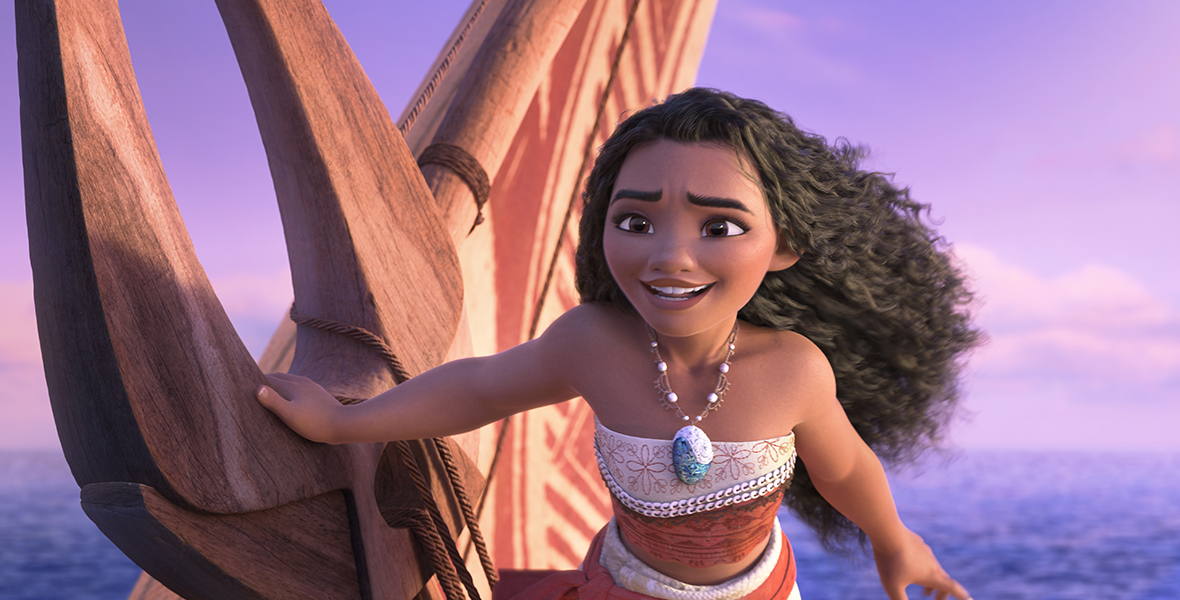By Courtney Potter
We’re a little under a month away from the debut of Walt Disney Animation Studios’ Moana 2, which sails onto screens November 27! In the film, Moana (voiced by Auli‘i Cravalho) journeys farther than she’d ever thought she’d go. Accompanied once again by demigod Maui (voiced by Dwayne Johnson), along with a new crew of unlikely canoe-mates (voiced by Hualālai Chung, David Fane, and Rose Matafeo), she heads into dangerous water; much like what guides her as a wayfinder, it seems this mission has been written in the stars…
Recently, D23: The Official Disney Fan Club had an exclusive chat with the film’s producers, Yvett Merino and Christina Chen, as well as two members of the film’s Oceanic Cultural Trust—Kalikolehua Hurley and Lāiana Kanoa-Wong—who spoke about the making of this incredible new film and gave us a glimpse into what audiences can expect.
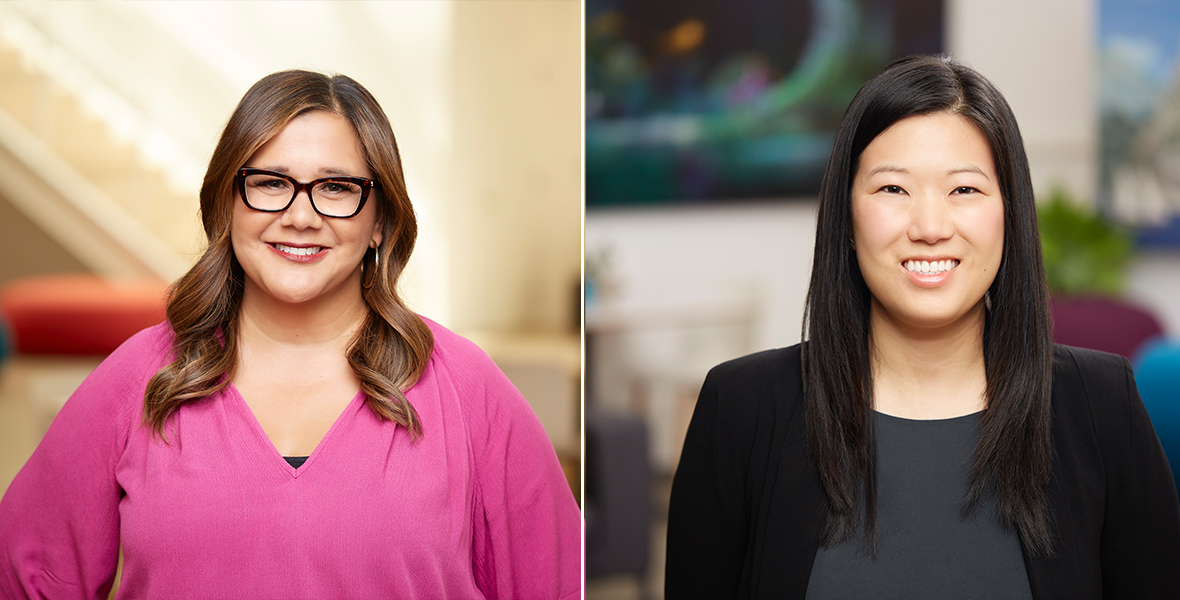
“Moana is one of my favorite characters,” explains Chen, “and she’s such a great symbol of strength, but also of such goofiness and vulnerability. And she has such love for not only her family, but also for people—and for wanting to find her own individual self and her sense of adventure. I think she definitely fills in that space with Disney heroines.” Adds Merino, “I love that in Moana 2, we see her a little bit older, a little bit wiser. She stands on her own from the first film—but on this one, she really grows into a great leader and great heroine, accomplishing more than what she ever thought she could.”
Catching back up with Moana is a riveting prospect for both producers: “I’m always excited to come back into the world of Moana,” Merino admits. “Christina and I were fortunate to work on the first film together—so when we had the opportunity to come back and work on this one, we were thrilled. But stepping into this world, I’d do any day of the week!” Says Chen, “We were super excited to be able to lean into a character that’s so beloved in the world. I think for us, we took it upon ourselves to take a leap of faith and assume that people would want to hear more about her—and she’s grown, and in the scheme of the story, how she’s continued to evolve three years since the events of the first Moana.”
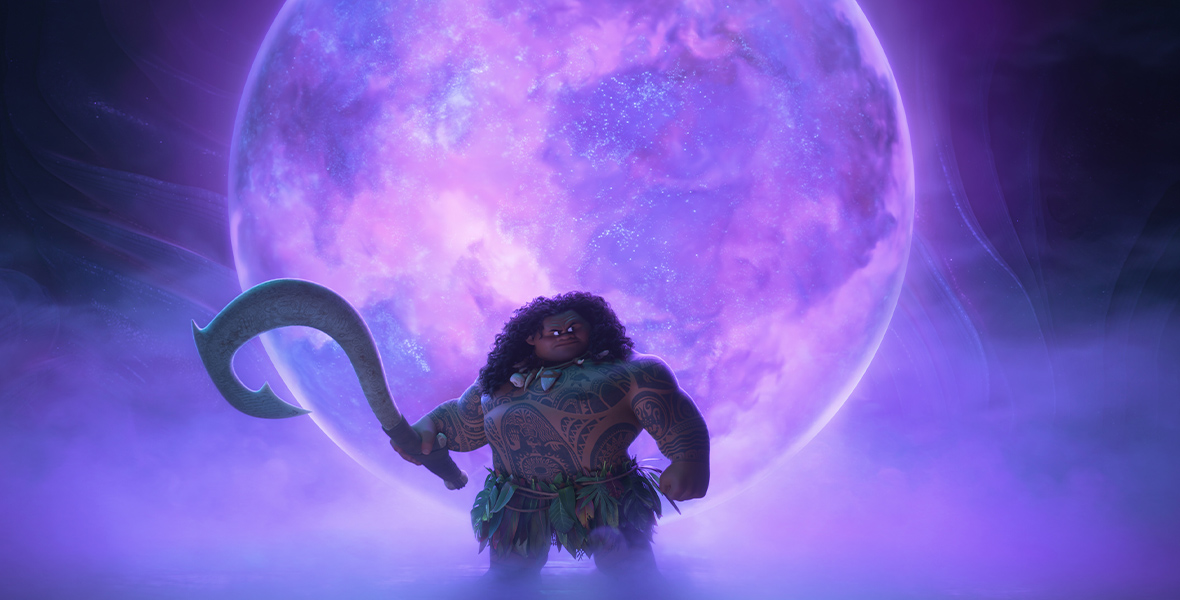
The pair is especially looking forward to audiences seeing the lush visuals of Moana 2 on the big screen. Explains Chen, “This film is such a spectacular event. The artists have really poured their hearts and souls into the smallest of details, to make this as beautiful as possible. The first film did such a great job of setting that bar—and we wanted to make sure that we not only met that bar but exceeded it. And our crew has done an amazing job in really making sure this is something that you have to see in theaters over and over again.”
Adds Merino, “These animated films, they take hundreds and hundreds of people to make. And for me personally, I feel like it’s such a gift that I get to walk into these doors every day and work with these incredible artists and engineers and production management staff. There are so many people that work so hard to get these films up on the big screen. They’re all amazing, and we’re all really just trying to tell the best story and make the best-looking film.”
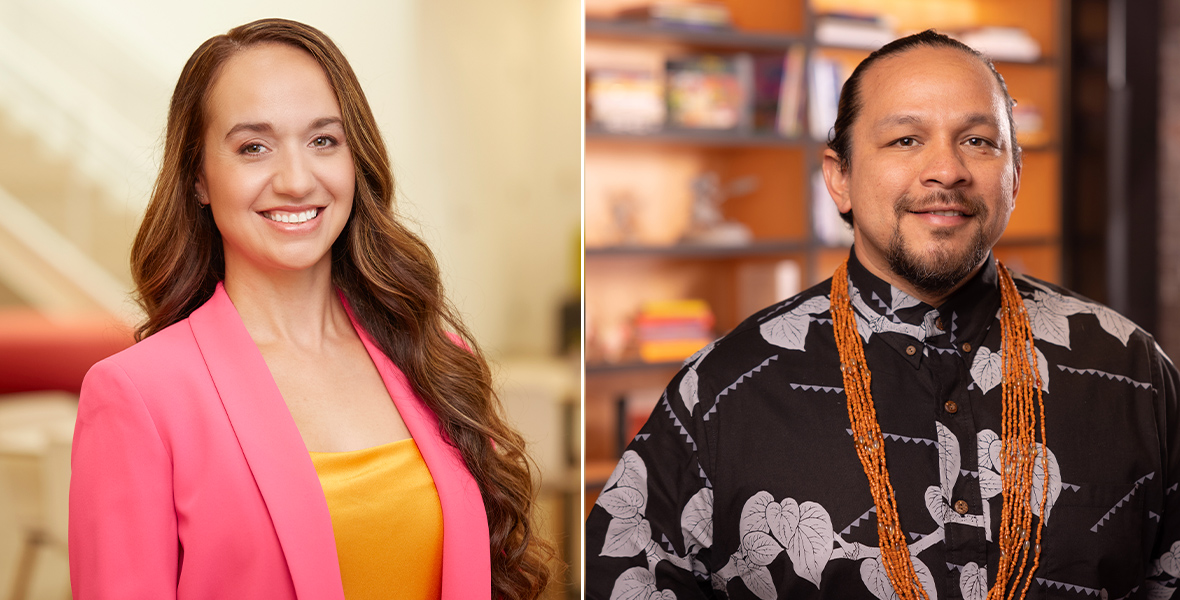
One of Walt Disney Animation Studios’ unique additions to its filmmaking process, in terms of both Moana and Moana 2, is the utilization of its Oceanic Cultural Trust—a team of experts in anthropology, linguistics, wayfinding, and choreography, and other advisors who present knowledge of and insight into the peoples of the Pacific. “I started working at Disney Animation on the first Moana film as its community relations manager,” Hurley tells D23, “leading the Oceanic Cultural Trust for that film, and was so lucky to do the same for Moana 2. I’ll always remember when I first heard that Disney Animation was working on a film about a young Pacific Islander. To work on our films, especially with our incredible cultural team, has been one of the great joys of my career.”
Adds Kanoa-Wong, “I got involved because my whole life has been dedicated to language and culture back home in Hawaiʻi. From the time I was a child until I became an adult and took on leadership roles, language, culture, voyaging—all of these cool things that uplift our community—have been a part of my life. And as the Moana team was expanding, they were seeking out additional input, and I got invited to be a part of the Cultural Trust.”
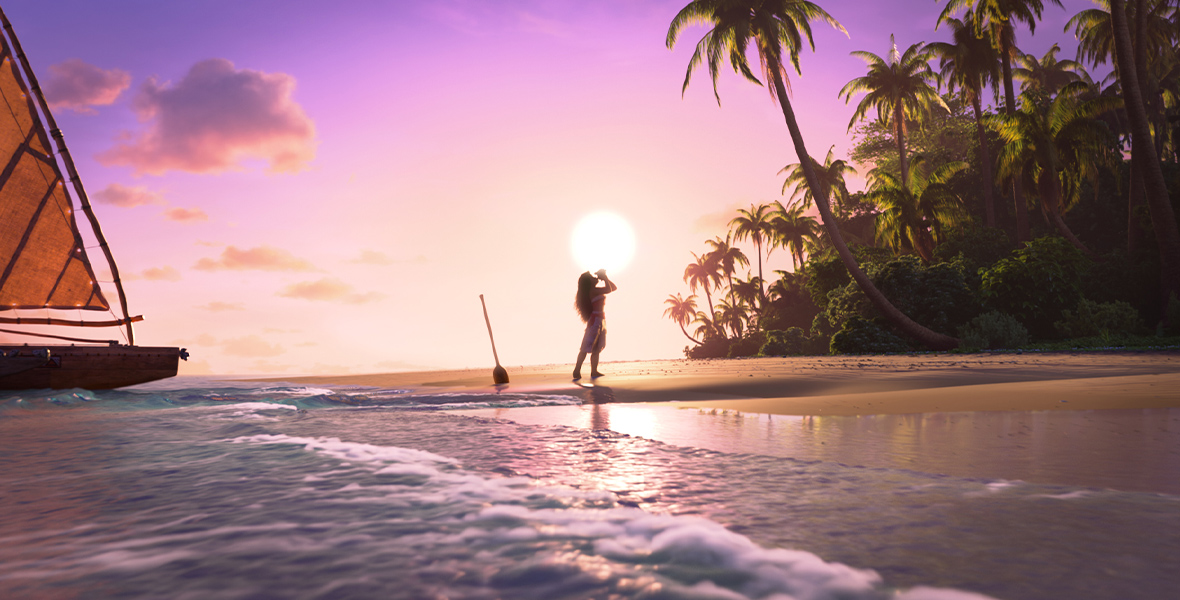
Working on these films has been an especially memorable experience for Hurley, who got to meet an extraordinary individual in the process: “I’m Native Hawaiian, grew up on Oʻahu—and as a Hawaiian person, I know a lot about Hōkūleʻa [a traditional voyaging canoe], the Polynesian Voyaging Society, and of course, [master navigator] Nainoa Thompson. I didn’t grow up around the canoes, so to be able to meet Nainoa—and not just meet him, but collaborate with him in the making of the film… For me, that was one of my favorite memories.”
As for Kanoa-Wong, “I got to visit the animation team in Vancouver, and it was my first time helping to lead on activities that would connect them more to our culture, to our voyaging heritage, and just having such a good time with them. We taught them basics of navigation; we taught them rope making. We also helped to do a little bit of our cleansing in a blessing of the space… Those are the kind of moments that will always live with me; I’m very grateful.”
And the opportunity to advise as part of such a unique cultural team is not lost him: “I’m so proud of our voyaging heritage,” Kanoa-Wong continues. “Often, I feel like people might hear about Pacific Islanders in very small sections of the news. But when you have a platform like entertainment—storytelling in movies like Moana 2—where you’re able to see wayfinding and voyaging at such a global scale is amazing to me. I hope it inspires people to look into it a little bit more and find out about our amazing voyaging ancestors. So if that can be uplifted, then I imagine our families at home, and the people of the Pacific Islands—or people all around the world—can find value in their cultural practices and the things that make them unique and help them arrive to their own space.”
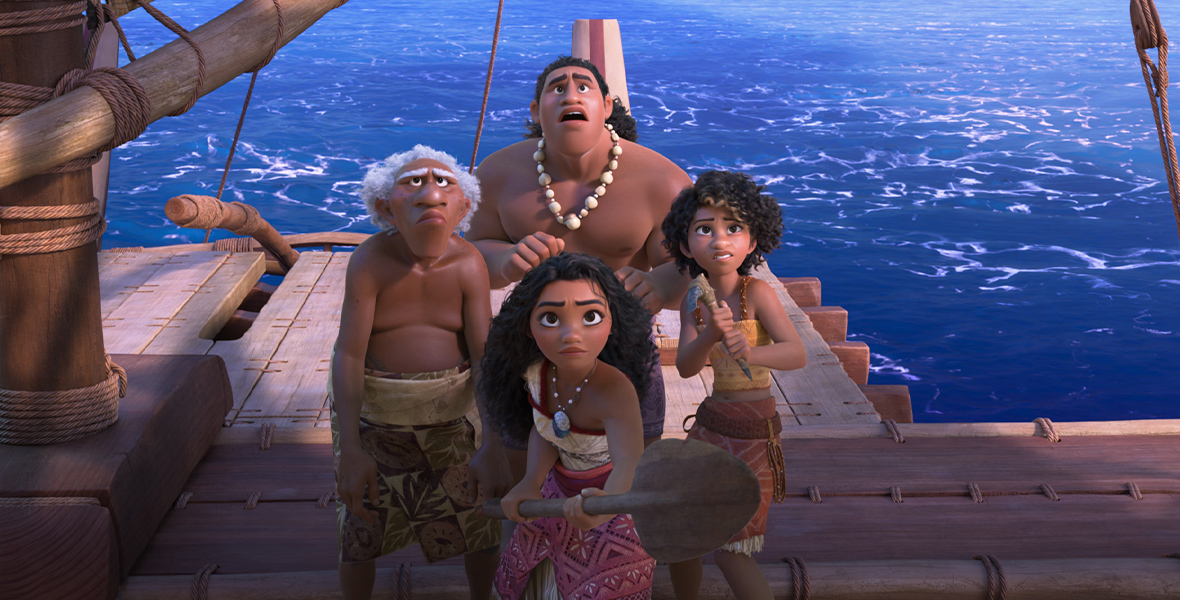
Says Hurley, “Pacific Islanders are not from a monolithic culture. We come from these incredible island nations and have our own distinct cultures and traditions. For Moana 2, a big challenge for us was figuring out how to create the fantastical place that Moana’s from, in Motunui. Working with the Trust—with experts from places like Samoa, Tonga, Fiji, Tahiti, Aotearoa, Hawaiʻi, Satawal, and the Solomon Islands—with all of us bringing our own unique contributions to the film, while finding cultural elements we all can resonate with, was something we really focused on.”
She continues, “Many of us Pacific peoples cherish our connections to nature. I hope that Moana 2 inspires us to sit, be quiet and really get in tune with the natural world around us. It could be listening to the rain falling on a roof, or the sound of the wind in the trees, or maybe the voice of a sibling, a parent, a friend, or a neighbor. When we can more deeply connect to the spaces we inhabit, we can gain a deeper appreciation for them. Moana really embodies that; there are many moments in this film where she has to get quiet and ‘tap in,’ and really listen to cues from nature around her to help her find her way.”
“The story of Moana and her growth as a leader is so epic,” adds Kanoa-Wong. “I think something that’s so universal; we’re all becoming leaders of our own lives. We’re all becoming navigators of our own lives. I think for all of us, we hope that audiences can see their own challenges in Moana’s story and learn how to be the best navigators that they can be.”


